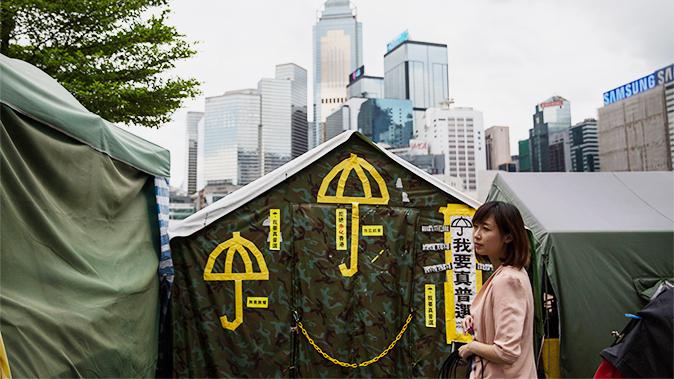Before the week is out, Hong Kong lawmakers will cast their vote for a Beijing-backed election reform plan—one that sparked the international financial hub’s biggest demonstration ever last year and raised tensions in the city.
Hong Kong’s Legislative Council will debate the passing of a bill on Wednesday, which will allow the city’s 5 million eligible voters out of a population of 7.2 million pick their top official come the next elections in 2017. A vote is expected to take place on Thursday or Friday. The election plan will be sent to Beijing for approval if two-thirds of the 70 legislators vote yes.
Presently, the bill is four votes shy of securing passage—for months, all 27 pro-democracy lawmakers have vowed to vote down the election plan.
These lawmakers claim that the Beijing framework, which was handed down on Aug. 31 last year, amounts to fake democracy because the two or three chief executive candidates will be picked by a nominating committee stacked with pro-Beijing interests.
Hong Kong’s pro-democracy supporters—students, professionals, homemakers, and retirees—have been so unimpressed with the Beijing election plan that they seized streets in key commercial and government areas for three months last year, and have organized several protest rallies this year, most recently on Sunday.
The pro-democracy camp in Hong Kong is aware that voting down the bill means having to stick with the current, distinctly undemocratic version, where the chief executive is picked by a small (1,200), nonrepresentative group of Beijing-friendly elites.




